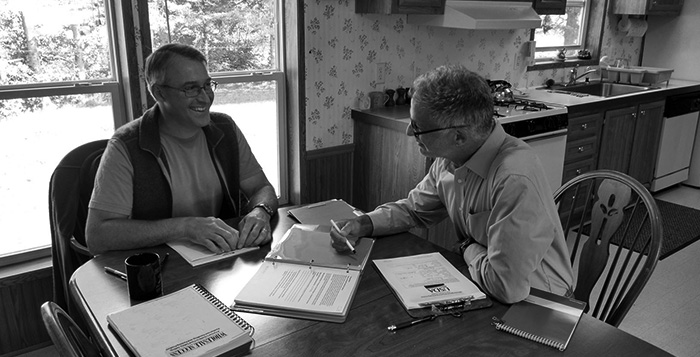In the United Kingdom, fire safety legislation covers all commercial premises and places of work. It also applies to buildings to which the general public have access, including the communal areas of residential flats.

In the United Kingdom, fire safety legislation covers all commercial premises and places of work. It also applies to buildings to which the general public have access, including the communal areas of residential flats.

As part of the fire safety legislation, those responsible for the buildings in question are required to carry out regular fire risk assessments. Depending on the size of the premises, an assessment can either be carried out by the relevant responsible person themselves or by an external fire safety specialist.
In smaller premises, or those which can be deemed to be at a lower risk, a fire risk assessment can be carried out in-house by the business owner or an appointed member of staff.
The person carrying out the fire risk assessment must be confident in their ability to spot any potential fire hazards and identify areas or people who may be at risk. The in-house assessor must also be capable of formulating an effective action plan for times when an emergency may arise.
Additionally, it is the responsibility of the person carrying out the assessment to ensure that all fire safety equipment, such as extinguishers, alarms and fire curtains, is tested and in good working order. Records of all maintenance work carried out on alarms, fire curtains and other related equipment need to be kept and regularly updated.
Larger organisations may need to call in the services of an external fire safety expert to carry out their risk assessments. When choosing a fire risk assessment specialist, it is advisable to check their credentials before hiring.
Competent fire risk assessors will usually be registered or have a certificate of competence from independent industry bodies. The Fire Risk Assessment Competency Council has a list of criteria which all professional fire risk assessors should comply with.
It is important to note that, even when a business hires the services of a professional fire risk assessor, it is still the responsibility of the business owner to ensure that the assessment is adequate for the needs of the premises and is carried out satisfactorily.
It is probably worth insisting that all work to be undertaken by the assessor is agreed in writing before the fire risk assessment commences. Similarly, written records should be kept of the steps taken to choose the assessor in the first place.
Even though a business may choose to appoint an external fire risk assessment specialist, a close involvement with the process should be maintained throughout.